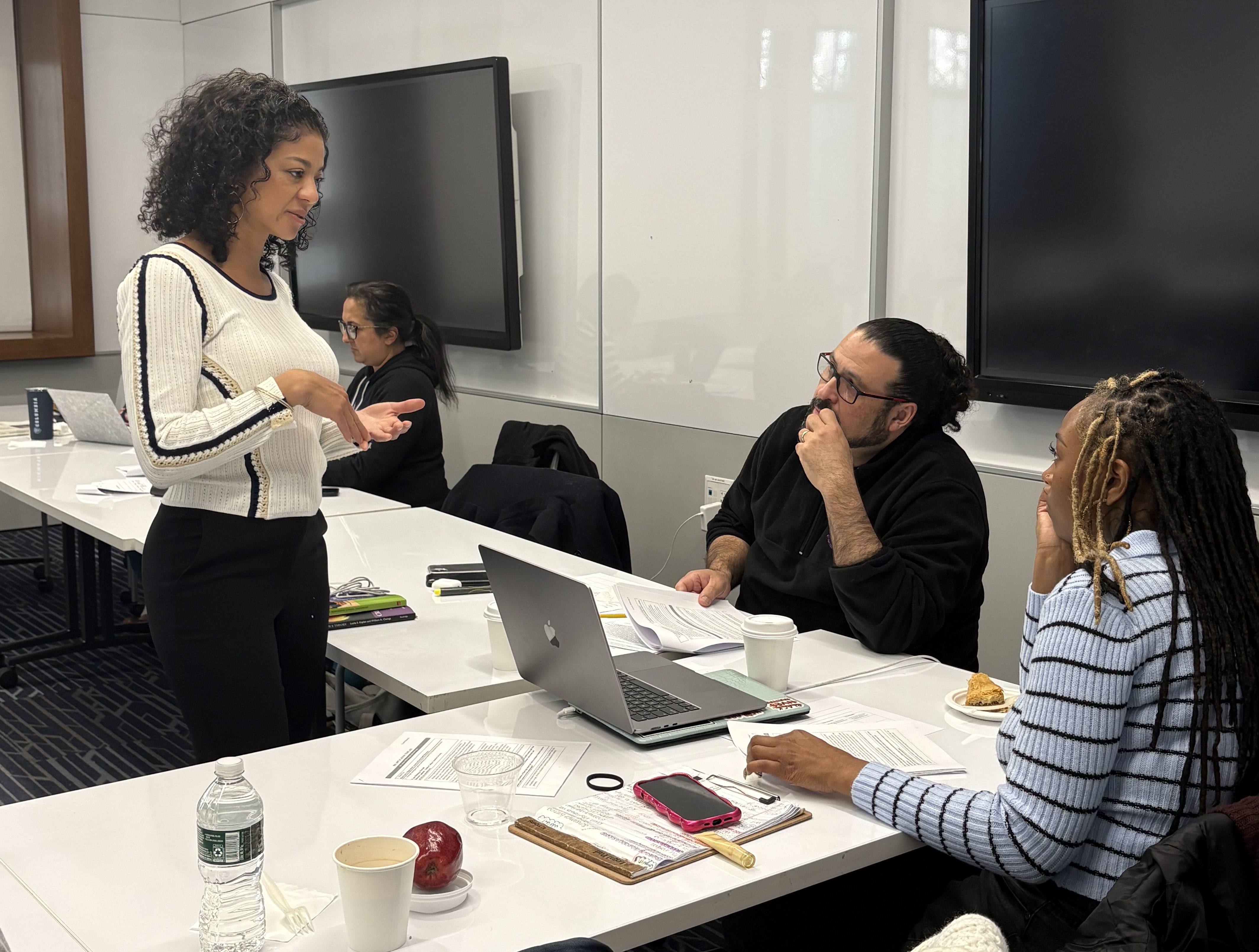Mission

Program Mission
The Urban Education Leaders Program (UELP) at Teachers College, Columbia University aims to prepare education professionals for district-level leadership positions in urban school systems through research-based doctoral studies that values equity, justice, and education as pillars of public necessity for growth.
Program Goals
Equip district-level education leaders with the research-based knowledge and real world experiences essential to transforming and sustaining complex urban school systems.
Students learn multiple ways of exercising leadership in schools, districts, organizations, and communities, with special emphasis on involving stakeholders in decision-making, utilizing political savvy in an ethical manner, strengthening district and community culture, and managing the day-to-day operations of districts (including working with people, data and processes) in an effective and efficient manner. Through case studies, simulations, class discussions and clinical practice (including a 450-hour site-based internship), the program strengthens students’ ability to lead educational organizations and systems that are purposeful, successful and humane contexts for learning in a global, technological and culturally diverse society. Students are assessed in relation to ELCC standards by program faculty and field-based supervisors.
Deepen and extend students' knowledge and understanding of enduring policies and advocacy issues that inform their capacity to strengthen schools and improve student learning, growth, and development.
Students examine critical and timely education policy issues and learn how history, the law, and current concerns in society play out on the stage of the school; they also learn how to advocate for new and stronger policies that have the potential to improve the quality of education. By focusing on issues of educational equity, students will understand the kinds of changes that are needed in systems that serve all students and families. Through coursework drawn from multiple domains, students broaden and deepen their reflections about values, trends and issues that affect the educational enterprise and stimulate inquiry around the most persistent challenges in professional practice. Written assessments, group projects, and action research provide concrete opportunities for instructors to assess students’ progress in these areas.
Engage students as contributors to the knowledge base in the study and practice of urban education leadership.
Students engage in research inquiry throughout their coursework and are required to complete both a comprehensive research portfolio and dissertation research study (traditional or action research) to successfully complete the program. Although UELP is a practitioner-centered program—designed for experienced education leaders who intend to continue their work as key influentials leading urban school systems—scholarly research and academic inquiry are critical components of the UELP experience. As such, our students contribute to the urban school leadership knowledge base, not only through their reflective practice, but also as “leading learners” within their educational organizations and institutions. This commitment to lifelong learning and inquiry is emphasized through all aspects of UELP, which requires students demonstrate their ability to conduct independent research, collect and analyze data in ways that inform decision-making at the school system level, and interpret and translate research findings and their implications for their respective school communities, constituencies, and stakeholders.
In line with these three over-arching goals, UELP graduates are prepared to take on the most challenging and critically important leadership roles in American education. The double perspective—exploring and understanding the enduring factors that have influenced education for decades along with acquiring and developing the ability to play an active role in shaping the system so as to produce a more just society—positions UELP students to work with others and exercise leadership in improving educational outcomes for children and families in the nation’s urban centers.